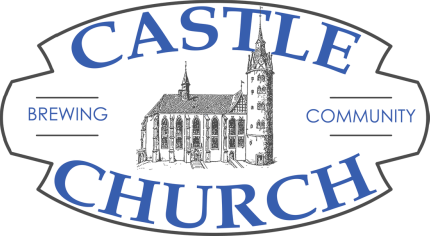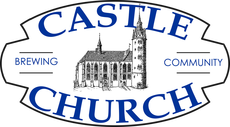Jared Witt l June 29, 2017
When he started out over a decade ago as a Hasidic JewIsh beatboxing reggae rapper, people thought for sure that Matisyahu must be nothing more than a novelty act. When he and his band were invited onto Jimmy Kimmel live, it was not to perform but to be grilled (and mocked) as the host tried to figure out their gimmick.
Having told Kimmel's people that he would refuse the show if he and his band couldn't get a spot on stage, it took all of three seconds into his lyrical firestorm, "King Without a Crown," to show the world that he isn't about gimmick; he is about soul, spirit, love, loss, and a very earnest longing for the Divine
It occurred to me while listening to this recent interview with the comedian Pete Holmes that it's not wholly intangible why one of my favorite lyricists and performers writes with so much more fascination and profundity than most of his counterparts in the Christian music industry, there are articulable reasons for it.
1) His search for God is a genuine search.
Having told Kimmel's people that he would refuse the show if he and his band couldn't get a spot on stage, it took all of three seconds into his lyrical firestorm, "King Without a Crown," to show the world that he isn't about gimmick; he is about soul, spirit, love, loss, and a very earnest longing for the Divine
It occurred to me while listening to this recent interview with the comedian Pete Holmes that it's not wholly intangible why one of my favorite lyricists and performers writes with so much more fascination and profundity than most of his counterparts in the Christian music industry, there are articulable reasons for it.
1) His search for God is a genuine search.
Matisyahu does not sing about the theological box where he, past tense, found God. Nor is his a doctrinally accurate but existentially unhelpful message that "God has already found you." The journey alluded to in his music is one of looking under rocks and digging in the dirt, searching "so hi, so lo," wherever there seems to be even a broken twig or a footprint of the Divine.
He has devoted himself equally to those means of finding God that would make an old Jewish grandmother proud and to those that would make her cringe. He has sought God through sober, disciplined study of the Torah, on an acid trip at a Phish concert, and everywhere in between (though, if my bishop is reading this, Castle Church is not encouraging the use of hallucinogens). He gives equal airtime to his friend who rejected his staid, well-to-do upbringing to grow mushrooms and live in a literal treehouse and his many years as a Hasid studying the Hebrew Bible in a synagogue basement.
What’s even more interesting is that he does not talk about either as having been a trip in the wrong direction. He speaks to the downside of losing your grounding in hyper-religious activity just as much as the downside of coming off a treehouse high. And he doesn’t regret either insofar as it has shaped his vision of God and his self-understanding before God. God is too multi-faceted and hard to pin down to legitimate just one single track or ritual.
2) He did the work.
As much as Matisyahu isn't about to dismiss the acid trips, he is no Bill Hicks. Those psychedelic means would be rendered meaningless and cowardly were they not balanced by more sober and traditional means of exploring one's interiority and finding God. For each of those experiences he has spent years under the tutelage of several rabbis, pouring over the scriptures, living into prayer practices, serving his neighbor, and the like. Don’t misunderstand from the previous couple paragraphs, Matisyahu would not be interesting if he was just a flaky, new-agey, self-styled spiritual guy who liked to sing songs. The enormous lyrical depth of tracks like “Jerusalem,” “On Nature,” “Silence,” “Tel Aviv’n,” and “Broken Car” doesn’t come from a lillypad hopping interest from one insight or method to the next. It comes from a sustained and abiding love of a single tradition.
This does not mean that he honors his own tradition to the denigration of all the others. Genuine love of one's tradition does not imply as much. The reason we spend a lot of time in one tradition is not to lord it over all the others, but because of what the Buddha said, as Holmes reminds us, “If you want water, you don’t dig six one foot wells. You dig one six foot well.”
3) Let the song be the Holy thing
This immediately struck me as one of the wisest things I’ve heard in all the years I’ve struggled with this question as both a pastor and a music lover.
Why is so much Christian music such a waste of airwaves? In Matisyahu's assessment, it's because so often these songs are written manipulatively just to get the listener to some other theological point that isn't organic to the art itself. The problem is the same old paradox of both art and theology, when you try to talk about everything, you end up talking about nothing. Or as G.K. Chesterton put it, "The poet only asks to get his head into the heavens. It is the logician who seeks to get the heavens into his head. And it is his head that splits." Real artists don't try to fit the whole universe, let alone the God within and beyond it, into their novel, painting, or song. They just try to put a frame around one small piece of it and let that be our doorway into all the rest.
So Matisyahu was actually saying something that should resonate quite clearly with the Christian tradition, whose absurd orthodoxy is that God can be found in small and plain things like bread, wine, water, and carpenters, as much as this claim is ironically lost on so many of our minstrels: "Let the song be the holy thing."
4) He has lived a bit.
I'm reminded of an old Saturday Night Live spoof commercial for a Bruce Springsteen’s Greatest Hits album in the style of those “Now That’s What I Call Music” ads. They played up how The Boss likes to tell the stories behind all the songs he writes. The humor is in how the sell lines keep getting more and more outlandishly worshipful until this clincher: “Bruce Springsteen is a man who remembers everything that ever happened to him.” No doubt rockstars can get very self-congratulatory on their song origin stories. But there’s also this truth at work: great art comes from people who have done a little bit of living, who have been around the world a bit, who have seen some things, who have as many stories to tell as you have time for another round. People don’t just hang on Springsteen’s every word because of celebrity but because he achieved celebrity by being a great observer of life and writing lyrics that resonate with people.
Ok, so I haven’t gone through and individually read the Wikipedia page on every musician, producer, record label executive, and band manager, who is responsible for putting out this praise music pablum like so many widgets, but if they have stories like that, it’s not evidenced anywhere in their music.
Matisyahu is different. From riding his bike along the streets "Brooklyn Bridge to Crown Heights," to the adolescent pilgrimage to Jerusalem which changed his life, to the Phish tour, to the Rabbi's study, he has been around. And it shows.
Thanks, Matis.
Cheers and Peace,
Jared
Jared Witt (Twitter: @realjaredwitt) is a pastor in the ELCA and, along with Aaron Schmalzle, is a Founding Director of Castle Church Brewing Community and Castle Church Faith Community.

 RSS Feed
RSS Feed



